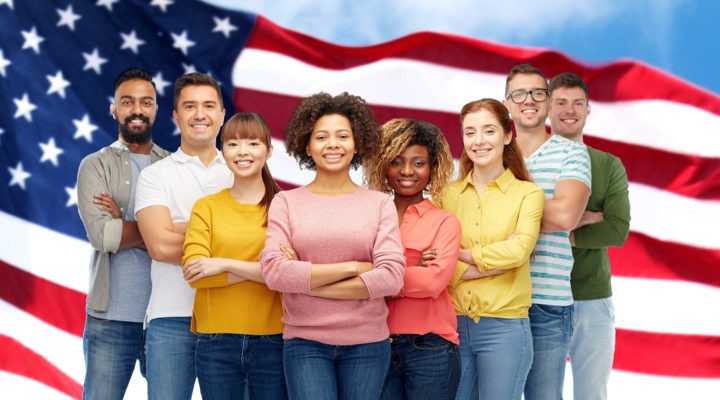Eighteen national immigration organizations have formed a new coalition to help undocumented immigrants obtain legal services and resources needed to access residency programs that could lead to citizenship.
Organizers say Ready to Stay will tap into grassroots communities, including faith-based organizations, to reach millions of undocumented immigrants and educate them about their rights and the options available to them.
“We are excited about the opportunity to make a robust network across the country of brothers and sisters who will walk with and work with immigrants and refugees in whatever remedies are available,” said Bishop Jaime Soto, leader of the Catholic Diocese of Sacramento, Calif., and chairman of the Catholic Legal Immigration Network, during a livestreamed launch event July 13.
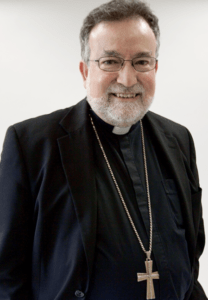
Bishop Jaime Soto
While the Biden administration’s high-profile support of federal immigration-reform legislation generates hope, nonprofits, ministries and other activist groups nevertheless must unite in their efforts to support those in desperate need of help, Soto said.
“Whatever we are able to achieve through the Congress, there should be no doubt about our commitment to walk with the immigrant and refugee community,” he said. “Our hope is that through this network we can not only develop good service providers, but we can be good neighbors that will provide a welcoming and a hospitality to our brothers and sisters who have come here seeking to be part of American society.”
Ready to Stay describes itself as an alliance dedicated to helping partner organizations expand capacities to implement large-scale immigration legalization efforts. Its founding partners include the American Immigration Council, the Black Alliance for Just Immigration, the Catholic Legal Immigration Network, Faith in Action and the Immigration Legal Resource Center.
The coalition provides training to enable national, state and local organizations as they connect immigrants and refugees with existing federal programs, such as Deferred Action for Childhood Arrivals, or DACA, and Temporary Protected Status, among others.
“This campaign is creating the infrastructure to help millions gain protection and enroll in programs that will lead to eventual citizenship.”
Its goal also is to provide legal and other services immigrants can trust in an environment otherwise known for rampant fraud that takes advantage of vulnerable people. The network’s newly launched website is offered in a dozen languages and enables immigrants to access information on their immigration status and their rights. It also includes a directory to thousands of trusted legal service providers searchable by ZIP Code.
“With Congress and the White House working toward large-scale citizenship and legalization measures, this campaign is creating the infrastructure to help millions gain protection and enroll in programs that will lead to eventual citizenship,” according to the network’s Facebook page.
The need for the expansion of these services is critical, said Daniela Alulema, director of programs for the Center for Migration Studies, a coalition partner.
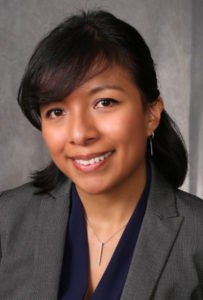
Daniela Alulema
“As a DACA recipient and undocumented immigrant myself, I can attest to the importance and much-needed work that nonprofit legal service providers offer,” Alulema said.
With the legal residency and ability to work that DACA provided, she was able to safely visit family in Ecuador and find meaningful employment with the center, which is one of the leading think tanks on migration in the U.S.
Her work testifies to the urgency of assistance immigrants need, Alulema said. “Our latest estimates indicate that 10.3 million undocumented immigrants live in the United States. And this population hails from virtually every corner of the world.”
Mexico, El Salvador, India, China, the Philippines and Brazil are among the top countries of origin for migrants living in the U.S. Nearly 60% have been in the country 10 or more years, and most exhibit strong rates of educational attainment, language proficiency and labor participation, she said. “Our data also shows that undocumented immigrants are deeply embedded in our communities.”
Roughly 1 million are eligible for the DACA program, and about half that number would qualify for Temporary Protected Status if they applied, Alulema said. Another 10,000 are eligible for the Liberian Refugee Immigration Fairness program, which provides green card access regardless of immigration status for Liberians living in the U.S.
“All these numbers highlight the importance of having a coordinated effort to ensure that every immigrant who is eligible for these programs can access trusted and affordable legal services in their community,” she said.
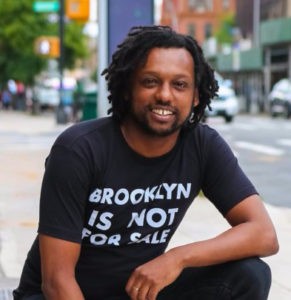
Abraham Paulos
But in many cases the barrier of racism, in addition to government red tape, has to be overcome, said Abraham Paulos, deputy director of the Black Alliance for Just Immigration.
The historic and ongoing injustices faced by Blacks in the U.S. also contributes to added layers of discrimination against immigrants who are Black, he explained. “Considering the systemic racism that we always feel in the United States, out of the 10,000 Liberians who are eligible for (the Liberian immigration program), only 3,000 have applied.”
Cirenio Cervantes, congregation organizer with Faith in Florida, which is part of the Faith in Action network, said he could have used the help of a coalition like Ready to Stay when he was 17 in a family of migrant workers. “Luckily my church was holding a DACA clinic, when me and my older brothers were able to apply for DACA.”

Cirenio Cervantes
Since then, Cervantes has received training to conduct DACA clinics in Florida. The new network will multiply the effort.
“This goes to show you the importance of implementation, the importance of having trusted individuals where you can go to prevent fraud, where you can go and be able to adequately and safely apply for a status that can help you live a better life in this country,” he said. “The way I was helped, I know Ready to Stay will help many more people.”
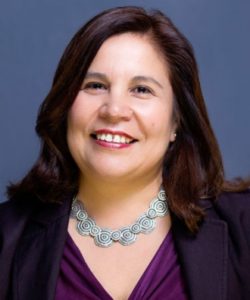
Angelica Salas
Angelica Salas, executive director of the Coalition for Humane Immigrant Rights, added that the coalition also will work to keep federal lawmakers keenly aware of the need for immigration reform.
“We are propelled by hope to push our members of Congress and also the White House to deliver on the path to citizenship,” she said.
Faith communities also will be reminded because they are well situated as influencers in their communities, Salas added. “That makes the church not only a haven of hope, but it also provides an important network that can provide faith and a lot of other resources families need.”
Related articles:
Coalition of evangelical Christians advocates third way on immigration reform
Biden administration rushing to strengthen DACA, official says

